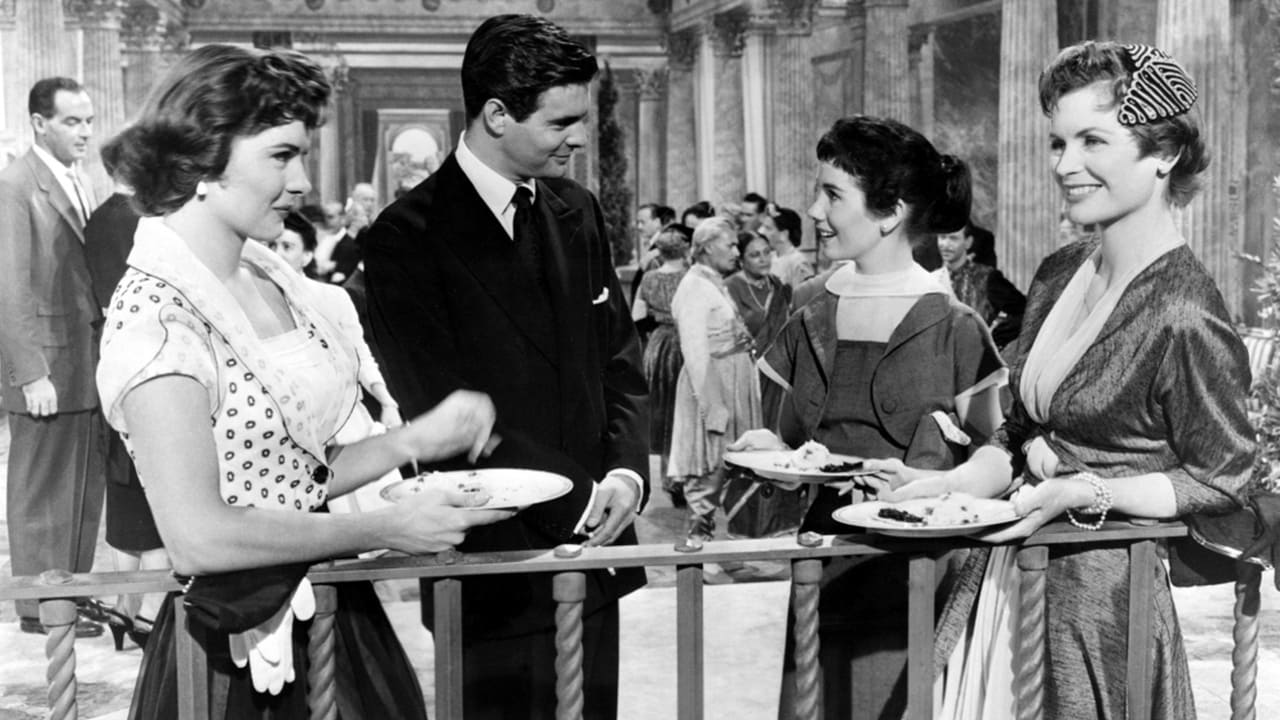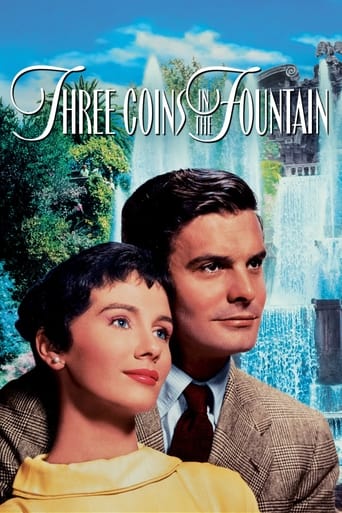

I like the storyline of this show,it attract me so much
... View MoreThis is How Movies Should Be Made
... View MoreIt's fun, it's light, [but] it has a hard time when its tries to get heavy.
... View MoreIt’s not bad or unwatchable but despite the amplitude of the spectacle, the end result is underwhelming.
... View MoreThis film used to be a big ratings draw when it aired on TV. I would hear about discussed among the female members of the households, and eventually the film would get seen. It was in fact the subject of a few news' reports, and several hit songs.Me, I never got it. What? No phasers? No Captain Kirk or Mister Spock? No lasers or guns ablazing? What the heck? Oh... it's a romance.Okay, after the initial boyish knee jerk reaction, I would try to take in the film, get bored, and go watch something else on the small portable black and white. Well, eventually I would watch the whole thing (under protest) but found a fondness for it after a while.It's one of the great old fashioned romances of all time. Not being Italian, nor European of any sort, I see an old fashioned romanticism with the old world, and in a healthy way. We see a kind of sanitized rendition of the young Italian males aggressively going after the female travelers in search of fortune of love. They eventually overcome fears and apprehensions about social class and ideals of what they want and think they want.It's part of what good romances are all about and do. It is of course a fantasy, and like all good fantasies we see the twists and renditions of hearts' dreams fulfilled. In films like this we're presented with characters who have lofty ideals and expectations of what they want and think they want. The story unfolds and shows us and them that what it was they were searching for may not be what they thought they wanted. In real life this is often the case, but not always. Technically; shot using the three stripe process, the colors are marginally muted (a bit of a surprise) but also gives pretty clear imagery. The film, because it is from the 50s, uses primarily master shots to get the story across, and the one action sequence in the film uses maybe two dozen cutaways at most (and like a lot of action sequences, defies some common logic, but hey, it's Hollywood). The composite shots are actually well blended together, but like a lot of composites from the time, the master and background plates don't mesh because of the different lighting schemes. Spectacular interiors, some scenic exteriors, a good slow watch for a Sunday afternoon.An event film that created a splash among the romantically inclined. I can't find any real flaws in it, but again, it's not really my cup of tea. Give it a chance. You might like it.
... View MoreRome was flavor of the month in fifties Hollywood; Paramount wound up with a mega hit sleeper on its hands when the romantic chemistry between Gregory Peck and Audrey Hepburn in Roman Holiday proved both a commercial and critical success. Hollywood minds are, of course, geared to spin-off potential; if One romance in black and white could rake in the dough think how much more could be made out of THREE in Technicolor. More than half a century later the response is pretty much ho hum but in the first half of the fifties a combination of the finest male singer of the twentieth century singing (albeit uncredited) a catchy title song over a series of tourist views of Rome predisposed audiences to like whatever came next however hackneyed. The sextet was interesting, Louis Jourdan wasn't even Italian but then neither was Clifton Webb, though Jourdan did personify the handsome Leading Man. Maggie MacNamara was the most interesting of the females but made only five films in total and in one of those she was uncredited; Jean Peters was arguably best known for becoming Mrs Howard Hughes in 1957 and retiring from the screen until the 70s and Dorothy McGuire was the best actress by a country mile. With a side trip to Venice thrown in this RomCom - a chick flick before the term was coined - couldn't miss and still has a novelty value for the easily pleased.
... View MoreI miss those days, even though I wasn't even born yet. This film is an obvious attempt to lure tourists from America to visit post-War Europe. However, the filming and scenery is enough to calm anyone's nerves. Italy is no more beautifully displayed. The life of Italy is no more romantically displayed.The plot of the movie revolves around three beautiful American women hired to work in offices in Italy. Two of the women meet Italians, and one meets an American ex-patriot writer. Each has their romance and their adventures. Rossano Brazzi plays a struggling law student. Louis Jourdan plays a wealthy art collector/businessman. No one could have played the European in more gentile a manner than he did.The best part was how Jourdan's lover tried to showoff by learning everything about him and agreeing with him. He was so idealistic and naive that he believed that they were completely compatible. His mother, however, is very smart, and figures out her game. Of course, he is mad when he finds out that she was trying to play on what he liked. Of course, in the end they all meet and fall in love by the fountain where they had wished at the beginning with their coins.While it was not as realistic as Roman Holiday, this corny movie stands the test of time. It was a time when European tourism was opening the doors to American tourists. It was a vibrant time in Europe, and fully captured in this film.P.S. - When I hear "Three Coins In The Fountain", I always think of Steve Martin in Planes, Trains, and Automobiles, singing that song to pass the time on the bus. The fellow passengers glare at him about this corny, unknown song. John Candy starts singing the more familiar "Flintstones".
... View MoreThree Coins in the Fountain is the standard location shoot from the fifties. We get expensive, widescreen photography (Italy - very nice), but the minute we enter an interior (or a character gets in a car) we're in an artificial world of soundstages. This becomes the defacto formula for 50s travelogue/dramas. The movie itself would fall under the heading "chick flick," a term of assignation, for a genre that generally offers only sisterhood beset by minor conflicts; and women either short-changing their own lives and development for a man (the 50s), or defining themselves via quasi-rejecting some social norm (the 80s forward). To be sure, there are chick flicks that can be enjoyed by general audiences (Terms of Endearment) but the term is characteristically used to deservedly dismiss trifling story lines like this one.Three women are explained to be in Italy for various reasons, and become room-mates. As the time demands, they're absurd, but true period types who use the steno-pool to travel, have an income, and find eligible bachelors whom they agree never to compete with; women whose truncated education (and society's glass ceiling) insure that they can't. Additionally, improbably, they live like queens.The movies wide-screen compositions are handsome but the story is off the low end of the scale for inconsequence. The script writers can't be bothered to spare four lines to introduce the piece's major conflict. Here a stenographer is such a dense bimbo that she a) inexplicably reveals a roommates transgressions to her boss, and b) forgets to inform her, causing job loss for her boyfriend and embarrassment for the room-mate. It's just too darned hard for this pretty thing to understand that she's both been outmaneuvered, AND done something very unethical, even within the terms of the movie. The movie notes none of this. The same character has an unexplored conflict in her desire to win a guy, but to also reap benefits (travel, etc.) from delaying or denying the onset of his romantic or sexual interest. The movie is a bewildering gender-power study.
... View More